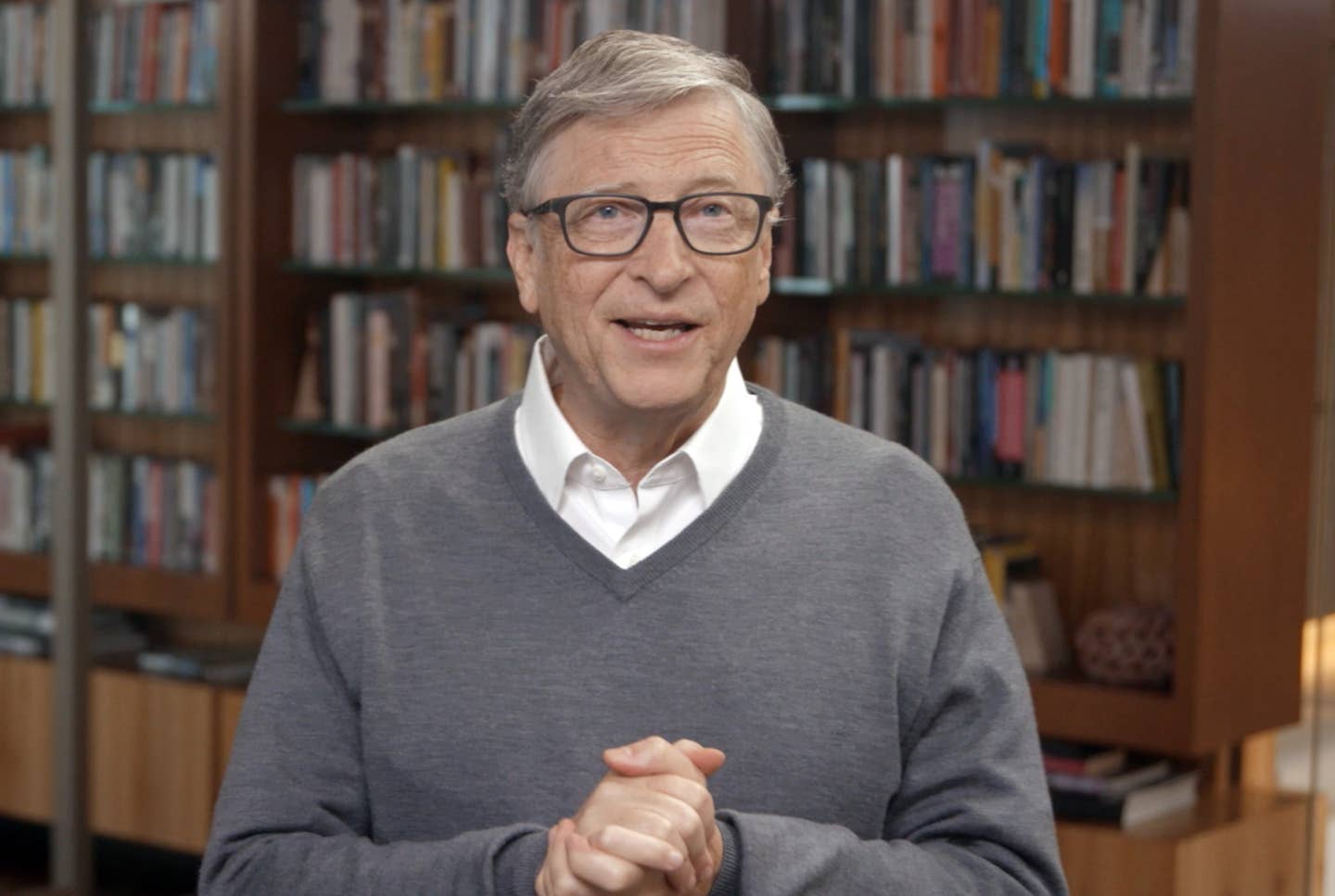
Bill Gates Says Rich Nations Should Shift to Plant-Based Meat for the Climate
Microsoft co-founder, philanthropist, and visionary Bill Gates has issued a strong call to action: Rich nations need to shift to plant-based meat.
The call comes on the heels of Gates’ book release, How to Avoid a Climate Disaster, in which Gates proposes a wide-range of what he calls a “practical–and accessible–plan for how the world can get to zero greenhouse gas emissions in time to avoid a climate catastrophe.”
Is Going Plant-Based the Solution to Climate Change?
But are plant-based and lab-grown meats the complete solution? And should poor nations also switch to plant-based protein sources? In an interview with MIT Technology Review, Gates answers these questions. For now, his answer is No, or at least not entirely. He aslo doesn’t believe that the poorest 80 countries can be expected to move to what he calls “synthetic meat” any time soon.
But, "rich countries should move to 100% synthetic beef,” he says. He points out that “you can get used to the taste difference, and the claim is they’re going to make it taste even better over time. Eventually, the green premium differential is modest enough that you can sort of change the [behavior of] people or use regulation to totally shift the demand.”
People are in fact shifting to a plant-based diet and are doing so for not only health but also the environment research shows. Alternative proteins are tasting better, becoming cheaper, and more widely distributed, all important factors in ditching meat and opting for a meatless alternative.
While there are multiple processes and technologies enabling the development of alternative proteins, from traditional products to high-tech vegtech companies, Gates questions the economics of cell-based meat from companies like Memphis Meats, while commending both Beyond Meat and Impossible Foods. “Now the people like Memphis Meats who do it at a cellular level—I don’t know that that will ever be economical. But Impossible and Beyond have a road map, a quality road map, and a cost road map, that makes them totally competitive,” Gates says in the interview. Both Beyond and Impossible or miles ahead and have proven they can deliver on taste, price, and scale. Other companies that are in their infancy are vying for a piece of that market share.
Animal Agriculture Places a Huge Burden on the Environment
To deliver beef to those plates that want their meat and to eat it too, companies are seeking to raise livestock in a way that could lower greenhouse gas emissions, but it might be a stretch. Gates points out that raising livestock will always be an issue and burden on the environment, and although there is innovation around feeding cows for example a diet that is mean to stave off methane emissions—which is one of the reasons livestock production is hazards to the environment—still, protein alternatives like plant-based burgers will be required.
In his interview with MIT, he says “As for scale today, they don’t represent 1% of the meat in the world, but they’re on their way. And Breakthrough Energy [Ventures] has four different investments in this space for making the ingredients very efficiently. So yeah, this is the one area where my optimism five years ago would have made this, steel, and cement the three hardest.”
Gates Investing in Meat Alternative Technology
Gates is putting his money where his mouth is. The aforementioned Breakthrough Energy Ventures, backed by Gates, invests in companies that aim to combat climate change and has multiple investments in the companies related to plant-based food. Nature’s Fynd, for example, a Breakthrough Energy Ventures-back food technology company, uses fermentation technology to make meat alternatives. They use cultivated fungus found in Yellowstone National Park to make non-dairy cheese and meatless breakfast patties. Their line of Fy products—which to start include a dairy-free cream cheese and meatless patties made with their Fy complete protein, which are vegan—recently launched for pre-order and sold-out in the first week.
There is no shortage of alternative protein companies coming on the market to help deliver on Gates’ call to action for wealthy countries to ditch meat altogether.
More From The Beet






